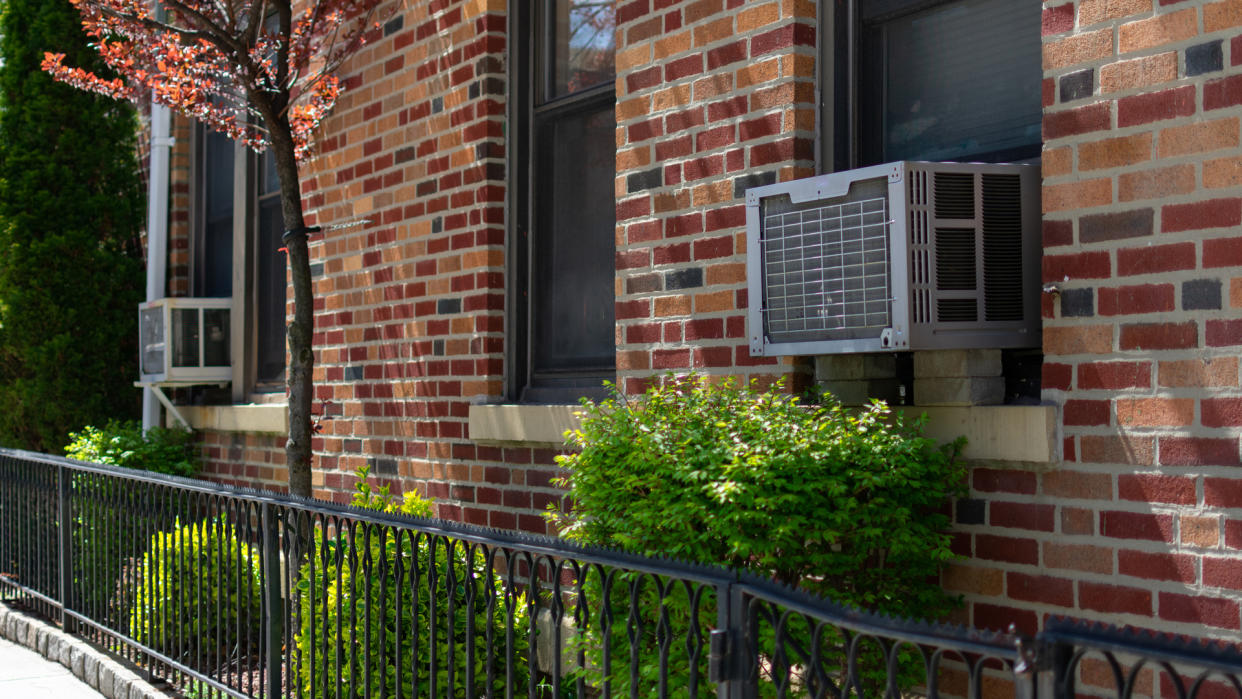6 Ways To Avoid a Spike in Your Electricity Bill This Summer

Summer is right around the corner, and warmer days mean an increased need to cool off. Unfortunately, this can also translate into higher electric bills, but experts shared tips as to which appliances you can unplug to save some cash.
First, how much you pay depends on where you reside. For example, Hawaii residents pay the highest average electricity rates in the country, with a rate of 44.28 cents per kilowatt hour (kWh), according to EnergyBot.
Check Out: 9 Bills Frugal People Don’t Pay
Discover More: Owe Money to the IRS? Most People Don’t Realize They Should Do This One Thing
On the other hand, Nebraska and North Dakota had the lowest residential electricity rates in the nation, both under 10 cents per kWh.
Wherever you live, there are steps you can take to cut your monthly bill.
Get a Free Energy Audit
Howard Dvorkin, chairman of Debt.com, recommended that consumers find out exactly where their utility charges are coming from with a free energy audit from their local power company.
“Many utility companies will come to your home and suggest ways you can save money on energy in your home,” said Dvorkin, adding that some energy audits involve a room-to-room assessment where an energy professional checks rooms for air leakage and conducts thermographic scans.
“Once energy leaks have been identified, an energy professional should suggest energy-saving changes to your home, like adding insulation, sealing ducts or investing in energy-efficient appliances, smart thermostats or LEDs.”
Learn More: 7 Bills You Never Have To Pay When You Retire
Turn Off TVs, Consoles or Stereos on Standby
Many modern appliances, such as TVs, game consoles and home theater systems, are designed to be more convenient by including a standby mode, which allows the appliance to be turned on quickly without the need for a full restart.
“However, these standby modes consume electricity even when the appliance is turned off, which while only small, can add up over time and result in higher electricity bills if you don’t keep them in check,” said Ben Dhesi, creator of the energy-saving mobile app HUGO.
Dhesi added that according to the U.S. Department of Energy, standby power consumption can account for up to a whopping 10% of your home’s electricity usage, which translates to around $100 per year for the average household — meaning unplugging appliances when not in use can be an easy way to save $100 this year.
To make this easier, Dhesi recommends using a power strip with a switch to turn off multiple appliances at once.
Turn Down the AC
While it’s tempting to keep your home cool and comfortable during the hot summer months, running your air conditioner nonstop can add up quickly.
Rather than turning it off and suffering in the heat, Dhesi suggests trying a programmable thermostat to automatically adjust the temperature when you’re away from home or sleeping to save on energy costs.
“This way you can avoid wasting energy on cooling an empty house or running the air conditioner at full blast all night long, saving you 10% or more on your cooling costs which could potentially save you hundreds per year,” he said. “Turning your AC down by seven to 10 degrees can also help, with this minor change able to save you at least $50 a year without you noticing the heat.”
Unplug Chargers Overnight
Additional ‘vampire appliances’ include chargers, and keeping phones or tablets charging overnight can result in electricity waste.
“Stick to charging your devices during the day and unplug them once they’re fully charged,” Dhesi said. “This is an easy habit to get into, and it can help you avoid unnecessary energy waste while also ensuring that your device is always ready to go when you need it.”
Turn Off Desktops
One often overlooked appliance that can contribute to high energy bills is a desktop computer. Unlike laptops, which are designed to be energy-efficient, desktops can consume a lot of electricity even when idle, said Dhesi.
“If you don’t want to swap to a laptop,” he said, “I recommend using a power strip to turn off your computer and things like monitors or printers when they’re not in use, preventing them from going into idle or standby modes which can quickly add up.”
Keep Your Indoor Refrigerator and Freezer in a Climate-Controlled Space
If you have these in a non-climate-controlled space like your garage, workshop or storage shed, you could be spending more money on electricity than you are saving, said Ron Shimek, president of Mr. Appliance, a Neighborly company.
“The hotter the space where the refrigerator or freezer is located, the harder the appliance has to work to do its job,” he said. “Consider replacing those units with an outdoor refrigerator or freezer that is designed to work in that environment.”
Also, he said, if it has been more than a year since your refrigerator and or freezer has had the coils cleaned, it’s time to have that work done so your appliance is not working harder than it has to and running up your electric bill.
More From GOBankingRates
This article originally appeared on GOBankingRates.com: 6 Ways To Avoid a Spike in Your Electricity Bill This Summer
